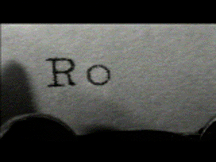to the right: "Saving men by naming them" - a scene from Schindler's list, and the task of literature as a tool of humanization


Beloved and Maus are both American novels in which the theme of overcoming past de-humanization is particulary strong. On this page, I attempt to show,
Quite simply, the one great meta-narrative per se is "Moby Dick" by Herman Melville, the second one is, arguably, Mark Twain's "Puddn'head Wilson". Both books are written by White Anglo-Saxon Males who have dominated the American cultural and literary scene for much of its past, and, most importantly, when the American meta-narrative was created.
And while Beloved shares with Ceremony that it is about an experience in America, and while Maus is about an experience outside of America, I have left out Ceremony because it resembles Beloved, and included Maus because it is still written about an American ethnic group, for an American audience, and is focusing on the epitomen of 20th century de-humanization, the Holocaust.
Two other topics to discuss
From here, two themes branch off:
| Looking at 'de-humanization'
is looking at what literature,
the tool of 'humanization', seeks to overcome. In that sense, de-humanization
precedes literature, and becomes a cause for, and of literature. Accordingly,
a reflection on de-humanization is also a meta-reflection on literature.
Yet, we will, and through both accounts - of the depiction of, and of the
overcoming of de-humanization - plunge ever deeper into the literature
itself. By closing in on "Maus" and "Beloved", and focusing on two of it's
characters, the interpretation of these details
of novels typical of the American Literatury Tradition
will provide a greater understanding of American Literary Traditions as
a whole.
to the right: "Saving men by naming them" - a scene from Schindler's list, and the task of literature as a tool of humanization |

|